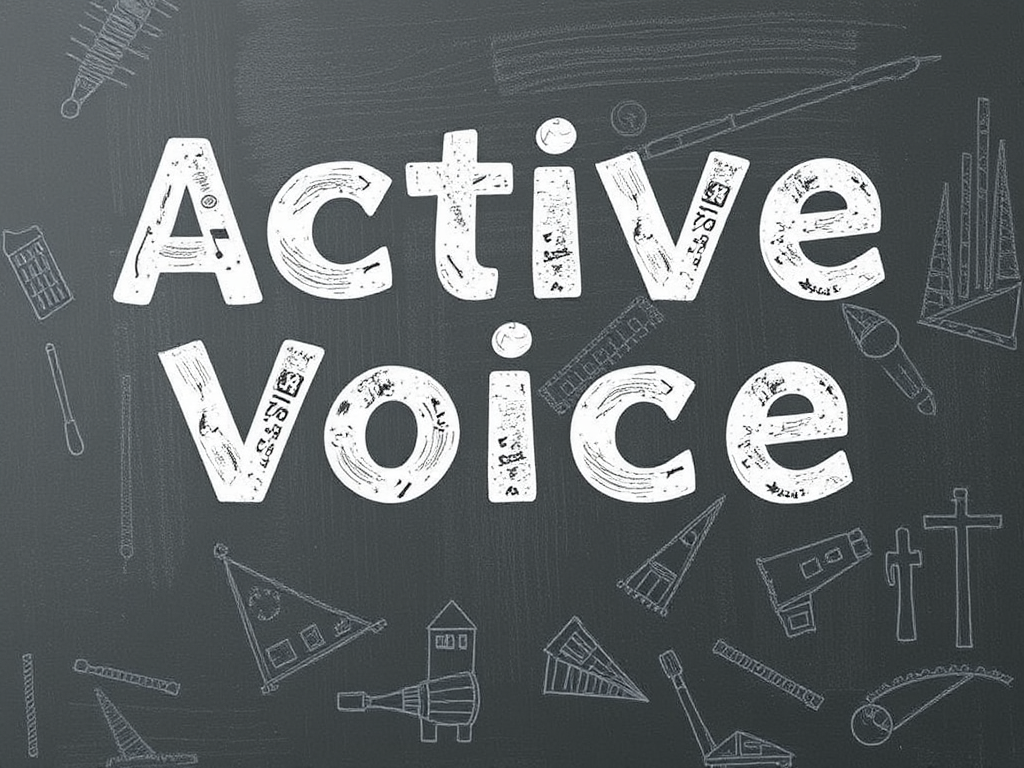Improving academic writing style and sidestepping informal language require strategic approaches. Adopting an active voice makes your writing clearer and more engaging. Additionally, using varied sentence structures maintains reader interest while enhancing writing. A formal tone should replace casual words and phrases with academic alternatives.
Key Takeaways
- Adopt an active voice for clearer, more engaging writing.
- Vary sentence structures and punctuation for lively, captivating text.
- Prioritize conciseness by cutting unnecessary words and phrases.
- Use a formal tone by replacing casual language with academic choices.
- Ensure accuracy and clarity by presenting evidence-based arguments and clearly defining terms.
Embrace Active Voice for Clarity and Engagement
Using an active voice can transform writing. It creates direct, compelling sentences that captivate readers. For instance, instead of saying “The experiment was conducted by the researchers,” use “The researchers conducted the experiment.” This simple shift increases clarity and engagement. Active structures help form persuasive arguments and maintain the reader’s interest.
There are occasions when passive voice is acceptable, such as when the subject is unknown or irrelevant—like in “The results were published in 2020.” However, consistently applying active voice enhances your writing’s impact and flow. By refining your style, you’ll guide readers seamlessly through your content. They’ll find it easier to grasp your message, resulting in more effective communication of ideas.

The Art of Balanced Sentence Structure and Punctuation
Creating engaging academic writing involves varying sentence structures. Simple sentences convey straightforward ideas. Combining these with compound sentences allows for more detailed expressions. Meanwhile, complex sentences add depth by presenting relationships between ideas effectively.
Consider using punctuation to improve the flow of your writing. Semicolons can link two related independent clauses without the need for conjunctions. For example, “The research was inconclusive; further studies are necessary.” Colons introduce a list or explanation, providing clarity. An example might be, “The study focused on three key areas: methodology, results, and implications.”
Dashes add a layer of emphasis or parenthetical thought, contributing to the rhythm and flow. They can be particularly useful for inserting additional insights or comments, like this: “The results were unprecedented—changing the field entirely.”
Here’s how varied sentence structures and punctuation marks can enhance your academic writing:
- Simple Sentences: Use them for impact and clarity.
- Compound Sentences: Effective for connecting related ideas.
- Complex Sentences: Useful for showcasing relationships between thoughts.
- Semicolons & Colons: Perfect for linking ideas and introducing explanations.
- Dashes: Provide emphasis and insert parenthetical thoughts.
A balanced mix of these elements keeps your academic writing dynamic and engaging. You’ll engage readers with varied **sentence structures** while ensuring your **arguments** are clear and compelling.

Achieving Conciseness and Clarity through Detailed Planning
Eliminating wordiness and redundancy can significantly enhance clarity. Overloaded sentences often obscure meaning, making it harder for readers to grasp your message. Creating an outline helps organize thoughts succinctly, ensuring a structured flow of ideas. Here’s how you can streamline your writing:
- Use simple words instead of complex ones.
- Cut unnecessary adjectives and adverbs.
- Replace long phrases with single words.
Organizing your research and arguments methodically not only improves reader comprehension but also boosts your chances of receiving citations. Readers and academic peers appreciate a direct and easy-to-understand writing style. It reflects professionalism and respect for the audience’s time. Through these efforts, achieving clarity becomes a natural outcome of your academic writing. Focus on conveying your message directly, ensuring every word matters.

The Importance of Formal Language in Academic Writing
In scholarly works, abandoning slang, contractions, and everyday language is crucial. Academics demand precision and respect, so informal expressions can undermine your credibility. Instead of saying “kids” or “guys,” opt for “children” or “individuals.” Swap casual phrases like “kind of” with “somewhat” or “approximately.”
Maintaining a formal tone ensures clarity. Your ideas will be well-received by experts. Consistently using appropriate language helps convey complex concepts clearly. When writing, replace “a lot of” with “numerous” or “several.” This creates a more polished and professional paper. Moreover, using formal vocabulary preserves the strength and integrity of your argument.
Here’s a quick guide to help refine your academic writing:
- Avoid contractions like “don’t” or “can’t”; use “do not” and “cannot.”
- Replace everyday words with academic alternatives. Use “assist” instead of “help,” or “determine” instead of “find out.”
- Steer clear of idioms. Instead of “a piece of cake,” consider “extremely easy.”
Being disciplined about word choice and maintaining an academic tone enhances the impact of your research. Precision isn’t just about following rules—it’s about ensuring your work stands up to scrutiny. If you embrace formal language, your writing will not only communicate well but also gain respect and attention from your academic peers.
Prioritizing Objectivity and Precision
In academic writing, relying on evidence-based arguments over personal opinions is crucial. Objective and precise writing strengthens your work and showcases a commitment to factual accuracy. When crafting your arguments, ensure they rest on solid research and verified data, rather than subjective viewpoints.
It’s essential to use precise terminology and define key terms clearly. This practice not only clarifies your work’s context but also avoids ambiguity. Readers appreciate when each term utilized is defined appropriately, allowing them to grasp the core ideas without guesswork.
Objectivity and precision are hallmarks of authoritative academic writing. They aid in constructing logical and persuasive arguments. Here are steps to enhance these components:
- Use evidence to support all claims. This provides a factual basis for your arguments.
- Avoid colloquialisms or slang. Maintaining a formal tone helps preserve an academic standard.
- Define and explain all specialized terms upon first use to ensure your audience understands them.
- Preferring active voice enhances clarity and embeds a stronger connection between subject and action.
By prioritizing these practices, you’ll build a more convincing academic narrative.

Sources:
Student Learning Center, UC Berkeley – Nine Basic Ways to Improve Your Style in Academic Writing
University of Reading – LibGuides: Writing: Style
Inside Higher Ed – Data: How Writing Style Can Affect the Number of Citations
Taylor & Francis Online – [Academic Article]
University of Southern California – LibGuides: Academic Writing
Wordio – Academic vs. Informal Writing: What’s the Difference?
University of Sheffield – Academic Writing Style
University of Melbourne – Writing Effectively: Academic Style
